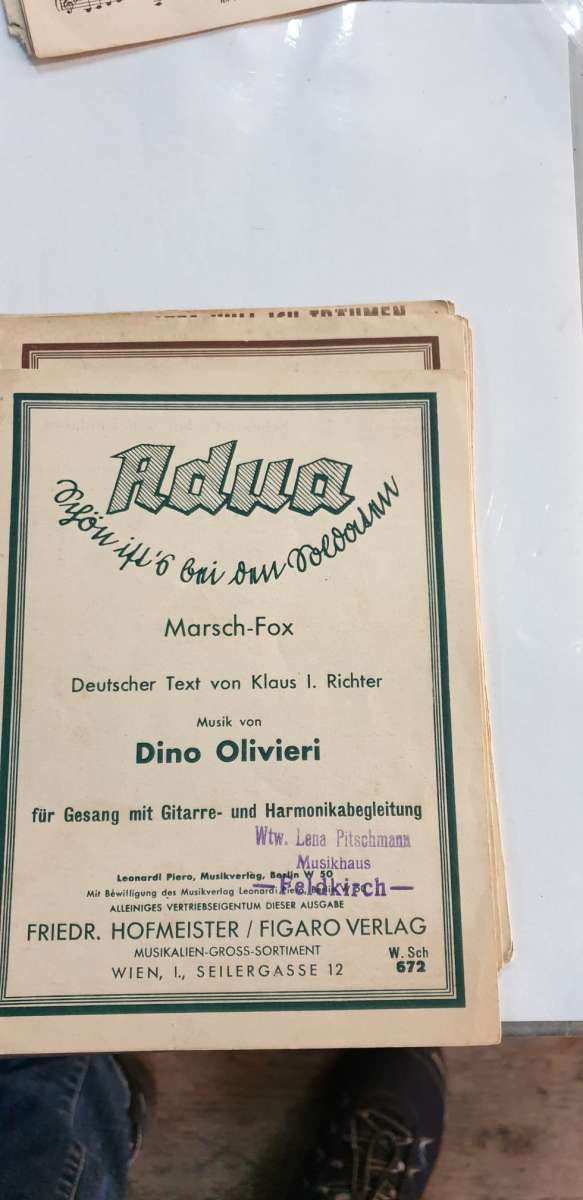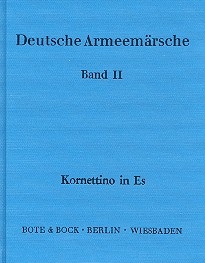

In particular the Reichpropagandaminister Joseph Goebbels, as Berszinski writes, noticed early on that down-to-earth, simple songs were a useful propaganda tool. Niel, who in early May 1933 joined the NSDAP and was among others became a "leading" Kapellmeister at the Reichsarbeitdienst, created numerous marches that largely served the National Socialist propaganda campaigns. It was a great success even before the start of World War II. The song was originally published in 1938 by the publishing firm Louis Ortel in Großburgwedel. The exact year of the song's origin is not known often the date is given as "about 1930," a date that, however, has not been substantiated. The lyrics of the song were written by Niel, a German composer of marches. A version, with Afrikaans lyrics, was the anthem of the South African Air Force during the apartheid years. The Finnish Army had a Finnish translation version, Kaarina, of this song during the World War II. The song has also become traditional by the highly Prussianized Chilean Army. In itself, the song has no military themes, beyond the fact that the narrator (evidently a soldier, though this is not explicitly stated) is away from his beloved and recalls her when seeing the plant which has the same name. The theme of the song is based on "Erika" being both a common German female first name and the name of the heather plant (German: Heide, Erika Latin: Erica), of which the heather-yards are considered as a "symbol of German natural heritage".

The song was composed by Herms Niel in the 1930s, and it soon came into usage by the Wehrmacht, especially the Heer and, to a lesser extent, the Kriegsmarine. The latter includes Funkerlied, Panzerlied and Lili-Marleen.Erika (or Auf der Heide blüht ein kleines Blümelein) is a marching song of the German military. Louis in 1968 (!) when I was in college, and some years later I acquired "German Army Chorus And Brass Band - Soldier Chorus of the Training Battalion, Officer's Training School #2, Hamburg & 6th Music Corps of The German Federal Army". I bought "Ein Heller und ein Batzen 16 beliebte Marschlieder gesungen vom Soldatenchor und gespielt von dem Orchester den 11. My question is, does the modern Bundeswher, atoday, actually still encourage it's members to participate in singing these traditional songs or is it now frowned upon? I have in my collection several Vynyl LP records from the 1960's (for those who grew up with CD's, and MP3's, and too young to remember, these were bits of plastic, with music recorded on them, and played on a record player), these were songs and marchial music played and sung by the post-war Bundeswehr and include songs such as Funkerlied, panzerlied, Prussiens Gloria etc etc. I would like to ask the following question, The German military have always had a strong tradition during imperial and TR times of using martial music and "soldatenlieder", sung by I assume real people at the time., My question is, post war, what was the attitude towards this type of music? Hi folks, I've followed this topic for quite a while and seen have many threads/links to original German military marches and songs.


 0 kommentar(er)
0 kommentar(er)
